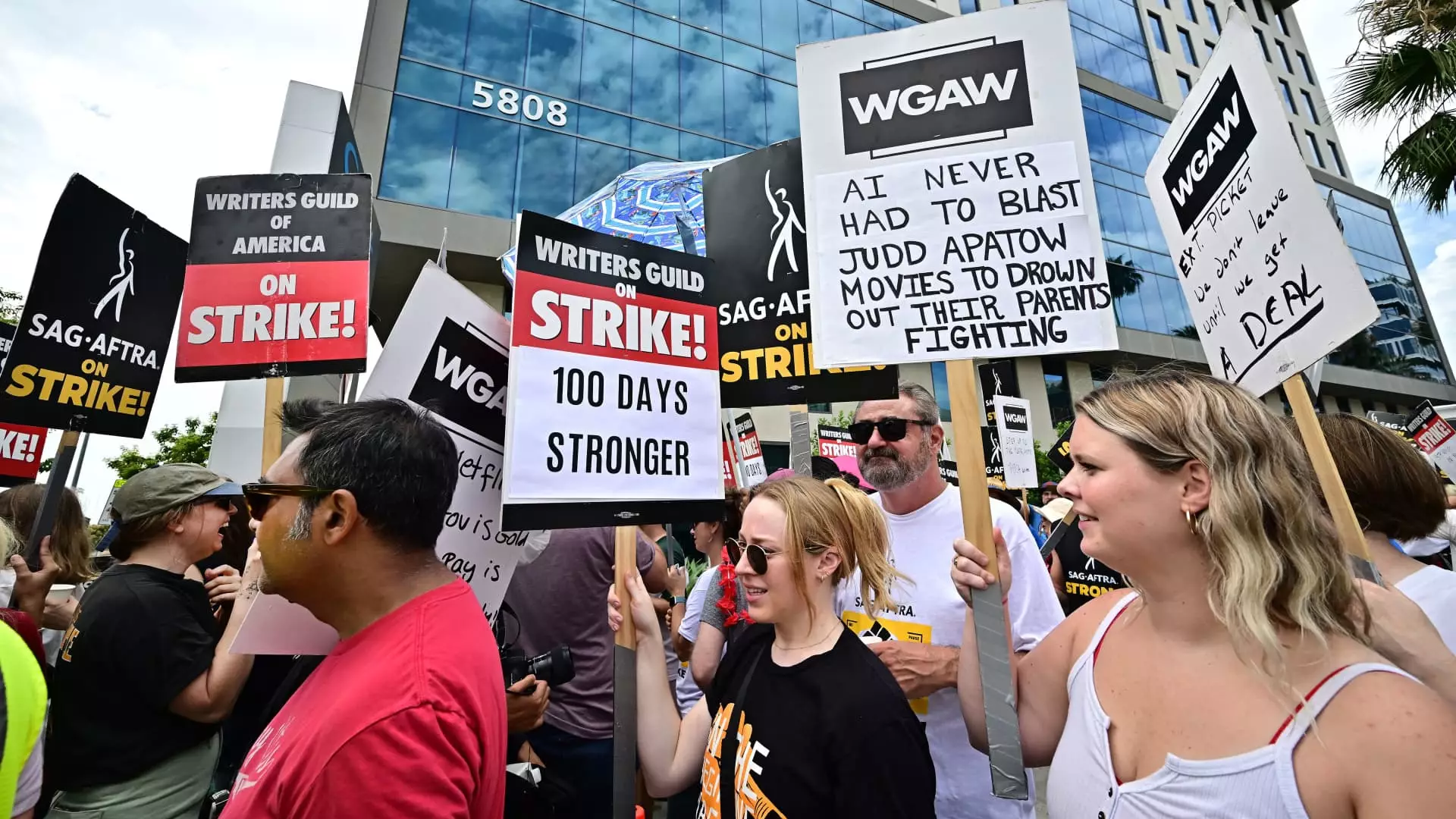The ongoing strike between Hollywood studios and the Writers Guild of America (WGA) has entered its 100th day, causing significant disruptions in the production of TV shows and movies. As negotiations continue, the Alliance of Motion Picture and Television Producers (AMPTP) has made its latest contract proposal public in an effort to address the key concerns of the writers union. However, tensions remain high, and a resolution seems distant as both parties struggle to find common ground.
The AMPTP’s proposal, delivered to the writers on August 11, aims to tackle several critical issues faced by the writers. These include residuals and compensation, artificial intelligence, and increased transparency in the streaming business. One notable highlight of the proposal is the wage increase, which the AMPTP claims to be the highest in 35 years for the WGA. The proposed increase is a compounded 13% over a three-year contract, with incremental raises of 5% in the first year, 4% in the second year, and 3.5% in the third year. Additionally, the proposal offers improved residuals, a new compensation structure, safeguards regarding the use of AI, and “data transparency” regarding streaming viewership. It also promises to provide training opportunities for writers aspiring to become showrunners.
Despite the AMPTP’s efforts, the response from the writers union suggests that negotiations are far from over. The writers union released a statement shortly after the proposal became public, highlighting their disappointment with the ongoing discussions. They stated that instead of constructive dialogue, they were met with a lecture about the merits of the AMPTP’s proposal. The union voiced concerns over the limitations, loopholes, and omissions that they believe leave Hollywood writers vulnerable and unprotected.
Both parties involved in the negotiations acknowledge the importance of reaching a resolution. The strike has had far-reaching consequences, not only for the writers but also for the wider creative community and businesses that rely on the industry. Carol Lombardini, President of the AMPTP, emphasized the need to end the strike and expressed hope that the WGA would work towards a mutually agreeable resolution. However, the writers union’s response indicates that they are not yet satisfied with the current proposal.
Efforts to find common ground have involved key figures from major media companies, including Bob Iger, CEO of Disney; Donna Langley, head of NBCUniversal film; Ted Sarandos, co-CEO of Netflix; and David Zaslav, CEO of Warner Bros. Discovery. These discussions, however, have not resulted in a breakthrough. According to the WGA, the purpose of these meetings seemed to be to pressure them into accepting the AMPTP’s proposal rather than engaging in genuine negotiations. The union even accused the studios of releasing a summary of the proposal shortly after the meeting as a tactic to enforce their position.
The release of the AMPTP’s proposal and subsequent discussions have not moved negotiations closer to a resolution. The stalemate between Hollywood producers and the writers union remains, as both parties stand firm on their positions. The writers firmly believe that the current proposal fails to adequately address their concerns and protect their rights as creative professionals.
The Hollywood writers strike shows no signs of ending soon. While the AMPTP’s latest proposal addresses certain issues, it has not been enough to satisfy the writers union. As negotiations continue, it is crucial for both parties to engage in earnest dialogue and find a compromise that protects the interests of all those involved in the industry. Only through a fair and mutually agreeable resolution can the creative community resume their work and overcome the hardships caused by the strike.


Leave a Reply